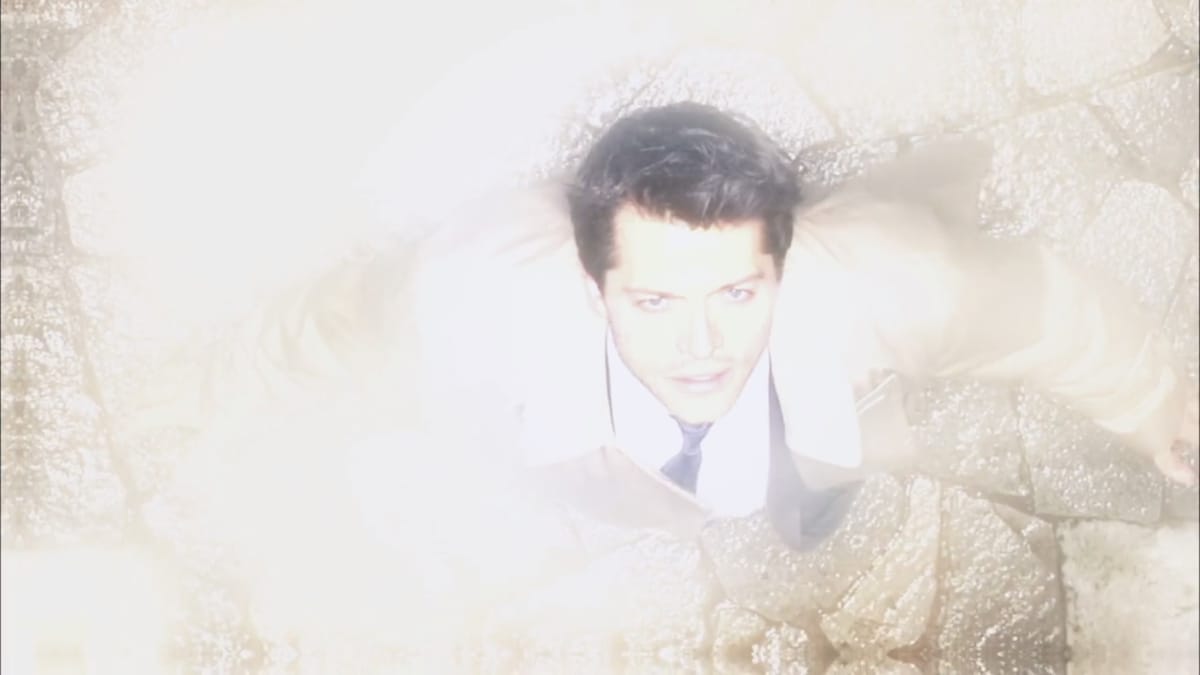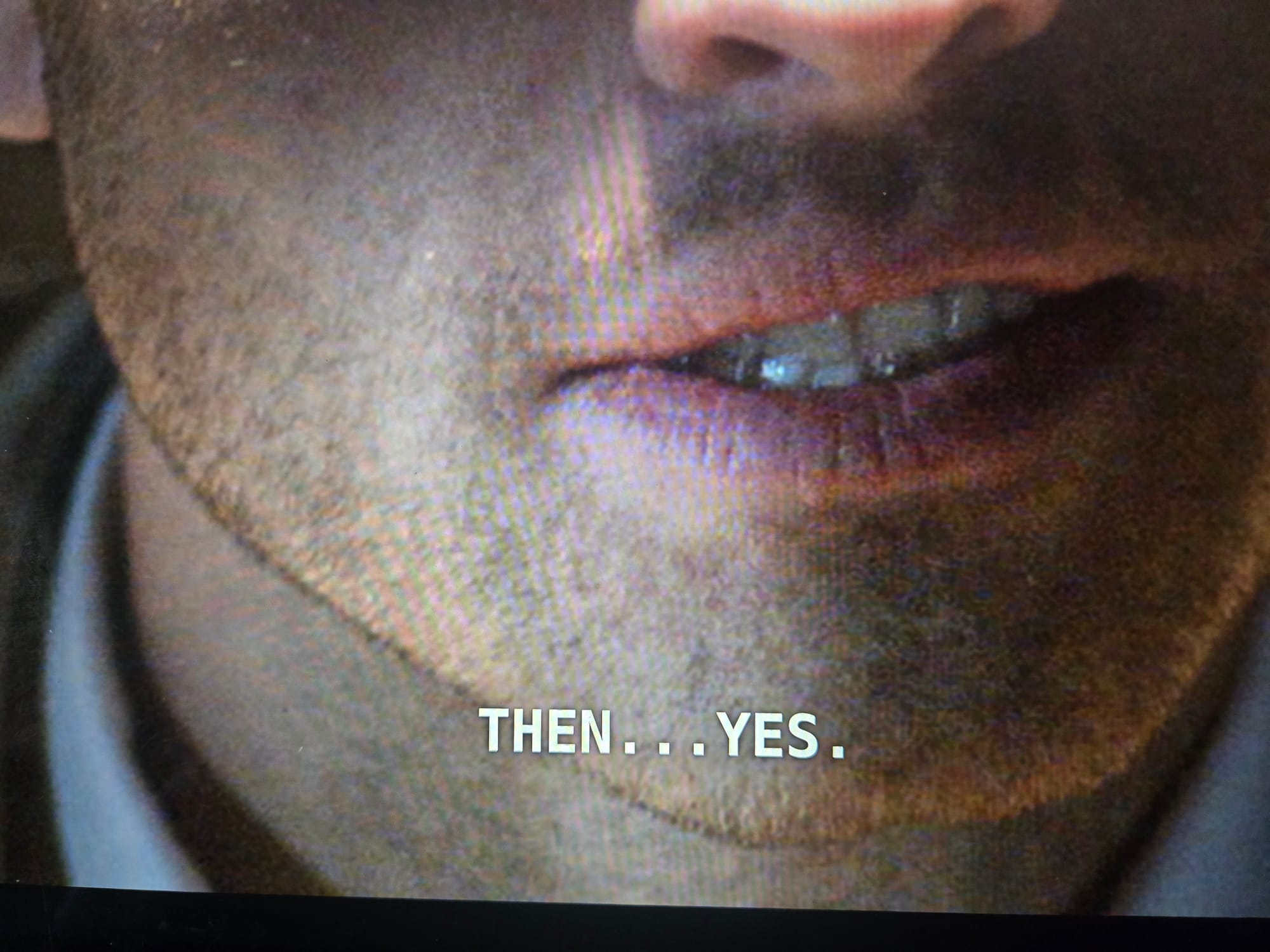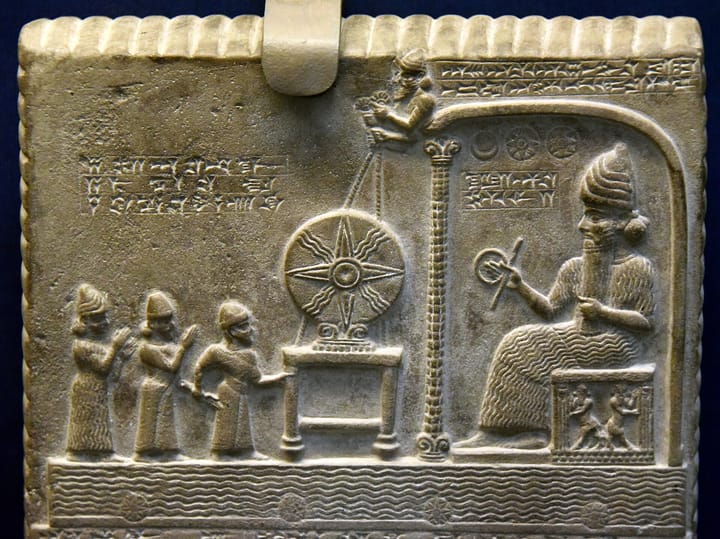The Sacredness of Body-Positivity

Because of my neurodivergence, I can have a terrible time adjusting to a new situation, especially as one as significant as an out-of-state move. One way to provide cushioning is to load myself up with comfort things ahead of time, such as a new hyperfocus. That's how I ended up giving the show Supernatural a second try.

(Spoilers ahead for season 4 of Supernatural)
In the beginning of season 4, we are introduced to the angel Castiel, played by Misha Collins who once performed the unique feat of accidentally becoming bisexual for a few hours. Castiel is harboring the human body of whom he only refers to as a "man of faith." Later in the season (in episode 20, called "Rapture"), we meet the owner of the body, Jimmy. Despite his wife's accusations of psychosis, Jimmy communes with Castiel and we receive a full scene of him consenting to hand his body over as host so that Castiel can endeavor to prevent the apocalypse.
Now that its rabid and widespread internet popularity was well over a decade ago, I feel safe in saying that I have found Supernatural to mostly be a schlocky horror show. That has allowed me to forgive it for its commitment to Christonormative concepts of evil and demonology that I fundamentally disagree with. However, this particular scene was beautiful, an accurate illustration of what it is to be a person of faith and devotion to an angel, and highlighted something further of import.
Typically, the idea of allowing a spirit to "mount," as African Traditional Religions name it, or "skin ride," as I've seen some grimoiric practitioners call it, your body is considered a fairly heterodox practice in much of Western spirituality. In fact, key figures of the foundational 20th century occult scene were not huge fans of the concept, as Phil Hine says about Helena Blavatsky in one of his blog posts:
It’s clear, I think, that within Blavatsky’s writings there is a distinct strain of what might be termed somatophobia – fear of the body. Self-control, discipline and moral probity were of course highly thought of in the period. There was a strong link made between health and the necessity of moral restraint. There was a common belief that “respectable people” (in particular, the urban middle classes) should be able restrain their passions and desires – particularly through the exercise of willpower. There is a strong emphasis on the necessity of the will in Blavatsky’s writing – and at least one element of her disdain for spiritualist mediums was the idea that mediums allowed themselves to become “passive” (see Alex Owen’s The Darkened Room: Women, Power, and Spiritualism in Late Victorian England for further discussion of mediums & passivity).
Spiritual somatophobia, of course, did not begin in the Victorian era. You only need to look at the fourth book of the Corpus Hermeticum—one of the tentpole texts for the ancient Greek cult philosophy "hermeticism" that began in the early Roman Empire and became one of the most influential strains of thought—for delightful quotes that enumerate pure hatred of the human body and its desires.
This, Tat, is the knowledge of Nous, and the vision of what comes from God. It is the perception of God, since the bowl is of God.
Tat—I also wish to be immersed in Nous, O father.
Hermes—If you don't first hate your body, son, you cannot love your Self. If you love your Self you will have Nous, and having Nous you will partake of knowledge.
T—Why do you say that, father?
H—For, son, it is impossible to be governed by both, by the mortal and by the divine. There are two kinds of beings, the embodied and unembodied, in whom there is the mortal and divine spirit. Man is left to choose one or the other, if he so wishes. For one cannot choose both at once; when one is diminished, it reveals the power of the other.
—Corpus Hermeticum, Book 4, line 6
But it's not just a matter of somatophobia that makes a lot of people uncomfortable with the concept of such close physical contact with spirits. Supernatural is, in fact, full of scenes where an exterior spirit coming into a human body is much less consensual and much less pleasant than between Jimmy and Castiel. The protagonists of the show, Dean and Sam, have a high body count takes the latter point into consideration more than the former, often killing or delaying spirits by destroying their unwitting vessels. This complete emotional detachment from the bodies is shorthand for a tradition of horror media that has for over a century exhibited and villainized the concept of possession.
However, as a spirit worker I always felt drawn to a somatic experience of spirituality and spirit contact. To allow a spirit to physically take over control of parts if not all of my body involves a close level of intimacy between us as a prerequisite. Between filling the loneliness in my heart that has been present since early childhood as well as craving clear and specific messaging, there is little that bothers me about such an arrangement.
Indeed, having a romantic bond with a spirit—as I do with Lucifer—ultimately includes physical interactions on a regular basis. These interactions started at a very specific and consensual point a few months ago, honestly not that different from what one may experience with an embodied partner. Quite literally, Lucifer offered to be "the boyfriend [I'd] never had." Despite wanting that very, very badly because oh look the deity of temptation saw the roots of what tempts me what a surprise, I put him off for a little while. Then, much like how Jimmy literally speaks aloud, "yes" in order to have Castiel enter his body, so I said to Lucifer, "Okay, I'm ready" in my process of handing myself over to him.
What followed has been a series of amazing and beautiful experiences, such as having my hands guided in the process of building his shrine and having him pick out gifts for me such as a sterling silver ring, which interestingly is usually a Solomonic protective measure against Lucifer and his spirits in the historic grimoires.
Even despite these experiences, however, I still have my doubts. I say this to illustrate how living in a secular and religiously impoverished society can truly steal from you so much important spiritual knowledge and certainty. My ultimate reassurance that what I was experiencing was a recognizable reality came from a friend who is initiated in an African Traditional Religion and is often rode by one of their own infernal spirits during ceremonies. When I told them about the air pressure changes with Lucifer's proximity, they informed me that telltale signs of spirit mounting in their religion on the opposite side of the hemisphere indeed included "pressure buildup in the ears" and "a feeling of external pressure around our heads."
Now confirmed, having this close somatic proximity is a regular and important part of my relationship with Lucifer. It enables him to better help me keep stable during this adjustment period, including in how he gives my body contact that it finds fulfilling and soothing as it would from an embodied partner. One of our routines is that he watches Supernatural with me, sliding into my body and providing a presence for me to cuddle as I put on a few episodes every night.
Recently, as we watched the scene where Jimmy's wife says, "[Why would an angel choose you?] You sell adtime on AM radio!" My body rumbled with laughter.
"Sorry," I said to Lucifer. "I don't know why that happened."
"That was me," he said. "Humans have a funny perspective. What does his career have to do with whether an angel would choose him for a task? We could choose anyone."
I don't have a good answer to that other than the human hatred of the body is perhaps the core of our spiritual inferiority complex. In indigenous cultures, it's clear that the body has an essential connection to the self; in Western culture, the concept of the mindbody connection was somehow only a recent revelation. By thinking our bodies are disgusting and undesirable, we believe our very selves insignificant as an extension.
One of the repeated and emphatic things Lucifer has done for me is try to turn me away from this unnecessary self-hatred. His entire ethos is, in fact, pro-body. Unlike other spirits who warn about diet, he believes people should eat what they enjoy. He sees widespread body hatred as one of the oppressive products of G-d. He has literally come between me and negative thoughts toward my body, early on in our relationship telling me with divine sternness, "Your body is what makes you special."
Contrary to Corpus Hermeticum's fourth book: there are divine entities who clearly see no issue with our bodies. Our sharing of our vessels allows them to partake in pleasures that are normally unique to us such as good food, sex, even mind-altering substances. Such spirits aren't ignorant of the maintenance our bodies require either; they will sometimes tell their people to mind their health or keep up with their exercise regimen.
In our modern society, we are kept in cages of fear and hatred even of our own selves. To be body-positive is to heal ourselves from confines that prevent and deter meaningful connection, with ourselves and others. To share my body with Lucifer is a radical act. Not just to show him that I love him, but also to allow me to further love myself.



